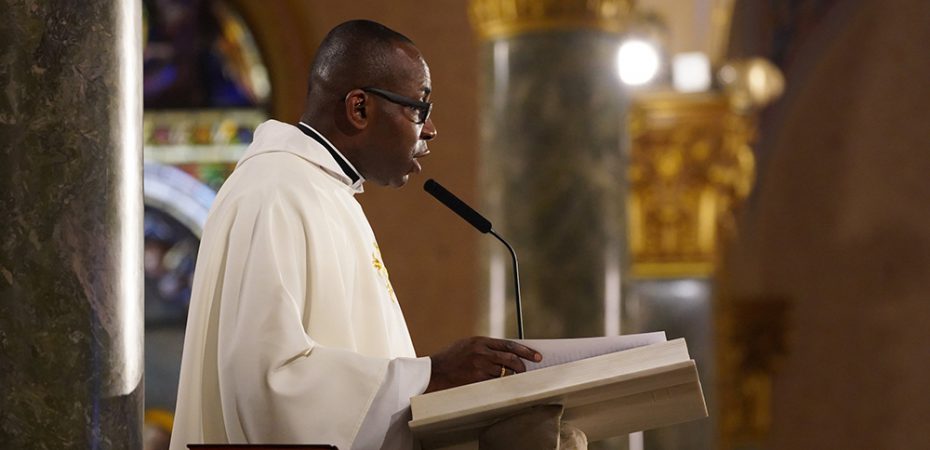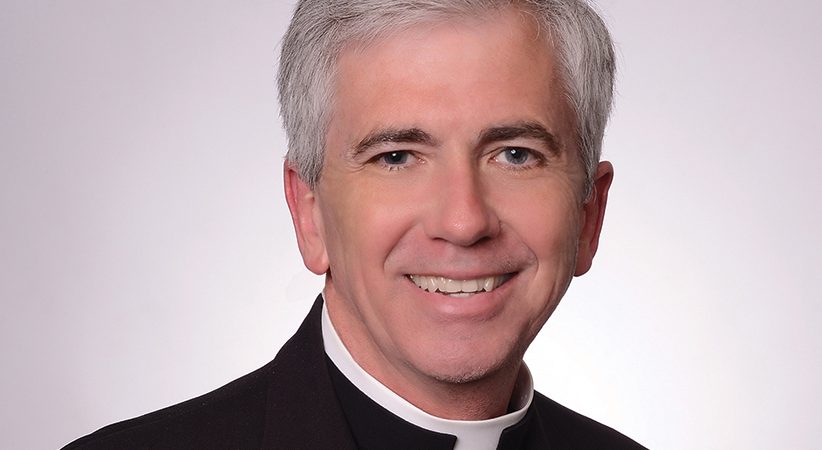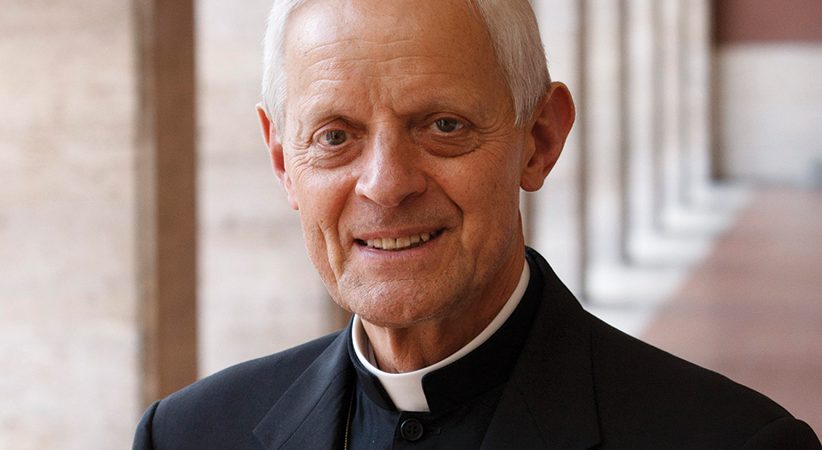The Grace and Burden of Preaching
How prayer and preparation make us better preachers
Msgr. Michael Heintz Comments Off on The Grace and Burden of Preaching
 One of the greatest joys — and at times one of the greatest stressors — in our lives as priests is the task of preaching regularly. I recall the excitement with which I approached my diaconate ordination and the opportunity to preach at Mass. I remember, too, my first priestly assignment and the enthusiasm with which I readied myself for the ambo. I also have looked back on some of my homilies preached during those first years of ministry (I have them saved in Wordperfect 5.1!), and think, “Wow. That was pretty bad.” Thanks be to God, we do grow as preachers. And we only grow by doing. The repeated effort, patterns and habit of preparing and preaching regularly and faithfully make us better preachers.
One of the greatest joys — and at times one of the greatest stressors — in our lives as priests is the task of preaching regularly. I recall the excitement with which I approached my diaconate ordination and the opportunity to preach at Mass. I remember, too, my first priestly assignment and the enthusiasm with which I readied myself for the ambo. I also have looked back on some of my homilies preached during those first years of ministry (I have them saved in Wordperfect 5.1!), and think, “Wow. That was pretty bad.” Thanks be to God, we do grow as preachers. And we only grow by doing. The repeated effort, patterns and habit of preparing and preaching regularly and faithfully make us better preachers.
Who among us hasn’t felt the stress and challenge of preaching daily? Who among us hasn’t been tempted — and perhaps even succumbed to the temptation — not to preach daily Mass, just because it’s easier than having to prepare something (and, after all, we’re just so busy)? There is a necessarily symbiotic relationship between a life of prayer and our preaching: prayer makes our preaching better, and the habitus of preaching deepens our experience of prayer. The “burden” of preaching regularly is a portal of grace in our life of prayer. The demand to enter into the Scriptures — daily — and to do so first as a disciple, and then only after that as one tasked with preaching, can become a source of rich fruit for us — both as disciples, men who are following the Lord, and as preachers, men entrusted with the sacred task of proclaiming that same Word addressed to us and to our people.
We need to be aware of one of the universal homiletic pitfalls, that of saying the same things again and again from homily to homily. Whether we realize it or not, each of us has a go-to idea that we often (unconsciously) gravitate toward in our preaching, an underlying theme, which surfaces not infrequently, but which is important to us. We need to have parishioners from whom we can ask and receive appropriately critical feedback; they often pick up quickly on our homiletic go-tos, and if we ask they may be able to reveal this to us. This takes humility on our part, but it really does make us better preachers. Our predominant idea or theme is not necessarily problematic, but there is value in recognizing that it’s there.
And precisely in order to avoid falling into the pattern of saying the same thing — all too often reduced to moralizing (slightly elevated articulations of the first principle of the natural law: do good, avoid evil) — it is important that we be fed by good reading. I do not mean by this primarily reading theological journals or exegetical studies — yes, perhaps — but even more that we not be afraid to read broadly, depending on our interests: history, science, poetry, social commentary, fiction, literature, just to name some possibilities. Reading good writers who provoke and enlarge our understanding of the world and our place in it opens up for us perspectives that can enrich our preaching. Good fiction, in particular, broadens our perspectives on the human condition, both in its nobility and in its fragility, helping us to live for a time outside of our own experience, and thus enabling us to understand and empathize with the experience of others who are perhaps quite different from ourselves and to whom we minister and preach.
Original sin not only affects our intellect and will, but it also hamstrings our imagination. Under the aspect of grace, the Scriptures reveal God to us and also reveal us to ourselves, sometimes in stunning new ways that we had not considered before. By thoughtful, prayerful engagement with the Word, we discover God on his own terms and ourselves as he sees us and calls us to be. Preaching — and the preparation it requires — can help to address this “imagination cramp,” by allowing what is revealed in sacred Scripture to provoke, challenge and heal our often woeful conceptions of God, ourselves, the Church and those among us whom we are privileged to live and to whom we bear the burden and joy of preaching.
MSGR. MICHAEL HEINTZ, a priest of the Diocese of Fort Wayne-South Bend, serves as academic dean and director of intellectual formation at Mount St. Mary’s Seminary in Emmitsburg, Maryland.





